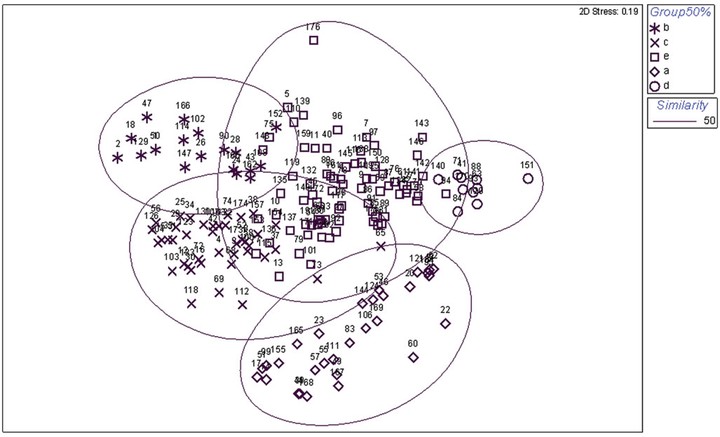Combining multi-dimensional scaling and cluster analysis to describe the diversity of rural households

Abstract
Capturing agricultural heterogeneity through the analysis of farm typologies is key with regard to the design of sustainable policies and to the adoptability of new technologies. An optimal balance needs to be found between, on the one hand, the requirement to consider local stakeholder and expert knowledge for typology identification, and on the other hand, the need to identify typologies that transcend the local boundaries of single studies and can be used for comparisons. In this paper, we propose a method that supports expert-driven identification of farm typologies, while at the same time keeping the characteristics of objectivity and reproducibility of statistical tools. The method uses a range of multivariate analysis techniques and it is based on a protocol that favours the use of stakeholder and expert knowledge in the process of typology identification by means of visualization of farm groups and relevant statistics. Results of two studies in Zimbabwe and Kenya are shown. Findings obtained with the method proposed are contrasted with those obtained through a parametric method based on latent class analysis. The method is compared to alternative approaches with regard to stakeholder-orientation and statistical reliability.